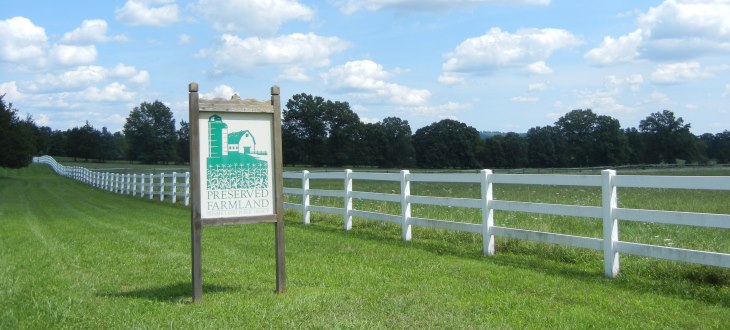The State We're In
A huge victory for preserved land in NJ and beyond
The land conservation community in New Jersey was stunned five years ago when the private, for-profit PennEast pipeline company announced plans to build a gas pipeline across miles of preserved open space and farmland in Hunterdon and Mercer counties.
“How can they do that? It’s preserved land!” was a typical reaction.
This week, the long-awaited answer came:Under the U.S. Constitution, PennEast cannot legally condemn land preserved by the state!
On Sept. 10, the Third Circuit of the U.S. Court of Appeals found that the state’s “sovereign immunity” under the Eleventh Amendment protects it from federal lawsuits brought by private companies. The court rejected PennEast’s claim that the Federal Energy Regulatory Commission can delegate its authority to condemn state lands to a private company.
The decision means that the company can no longer use eminent domain to seize 42 properties preserved by the state, many of them in partnership with counties, municipalities and private land trusts.
The ruling is a major victory for New Jersey Attorney General Gurbir Grewal, and for New Jersey taxpayers, who have invested billions of dollars in preserving open space and farmland for future generations. The ruling has implications beyond New Jersey, as it applies to all state-preserved lands where the state is not a willing partner in condemnation proceedings.
While the decision reduces the chance that the PennEast pipeline will be built, the company has said they are reviewing the decision and their options. An appeal would require petitioning the U.S. Supreme Court.
PennEast first announced its plans in 2014 to build the 120-mile pipeline from the fracking fields of the Marcellus Shale formation in Luzerne County, Pennsylvania, to Mercer County.
New Jersey officials and landowners were immediately struck by how much of the pipeline route would cut through preserved lands.
Forty-two of the 131 properties targeted for condemnation – nearly a third – are state-preserved farmland and open space. They include special places like the Ted Stiles Preserve at Baldpate Mountain, the Milford Bluffs, the Wickecheoke Creek Greenway and some of the state’s first preserved farms in the Rosemont Valley.
In January 2018, over huge objections from landowners up and down the route, PennEast obtained conditional approval from the U.S. Federal Energy Regulatory Commission to build the pipeline. PennEast immediately sued in federal district court to use the federal government’s eminent domain power to condemn the 131 properties along the route in New Jersey under the U.S. Natural Gas Act.
But the new court decision puts an end – at least for now – to the company’s right to access and take state-preserved properties. It also leaves the company’s permit application with the New Jersey Department of Environmental Protection in limbo.
It’s been five years since the project was announced. Since then, countless studies have shown that the pipeline is not needed and would have severe impacts to water, land and communities.
It’s now time for the companies behind PennEast to scrap the pipeline project. Gas experts have clearly demonstrated that the PennEast pipeline is not needed. New Jersey has more than enough pipeline capacity even during periods of peak demand, and the project has no proven public benefit.
For more than 60 years, voters in the nation’s most densely populated state have staunchly supported open space and farmland preservation, voting to spend billions of dollars to acquire land that grows our food, safeguards our water supplies, protects wildlife and provides public recreation.
These precious preserved lands should never be sacrificed for a private company’s profit-making endeavor!
To learn more about the court decision and the proposed PennEast pipeline, visit the ReThink Energy NJ website at www.rethinkenergynj.org.
And for more information on preserving New Jersey’s land and natural resources, visit the New Jersey Conservation Foundation website at www.njconservation.org or contact me at info@njconservation.org.
About the Authors
Alison Mitchell
Co-Executive Director
John S. Watson, Jr.
Co-Executive Director
Tom Gilbert
Co-Executive Director, 2022-2023
Michele S. Byers
Executive Director, 1999-2021
View their full bios here.
Filter
Get The Latest News
From The Garden State
In the
News

